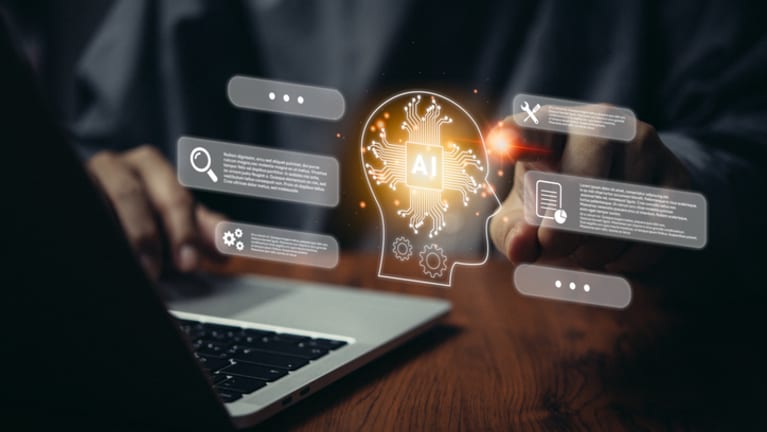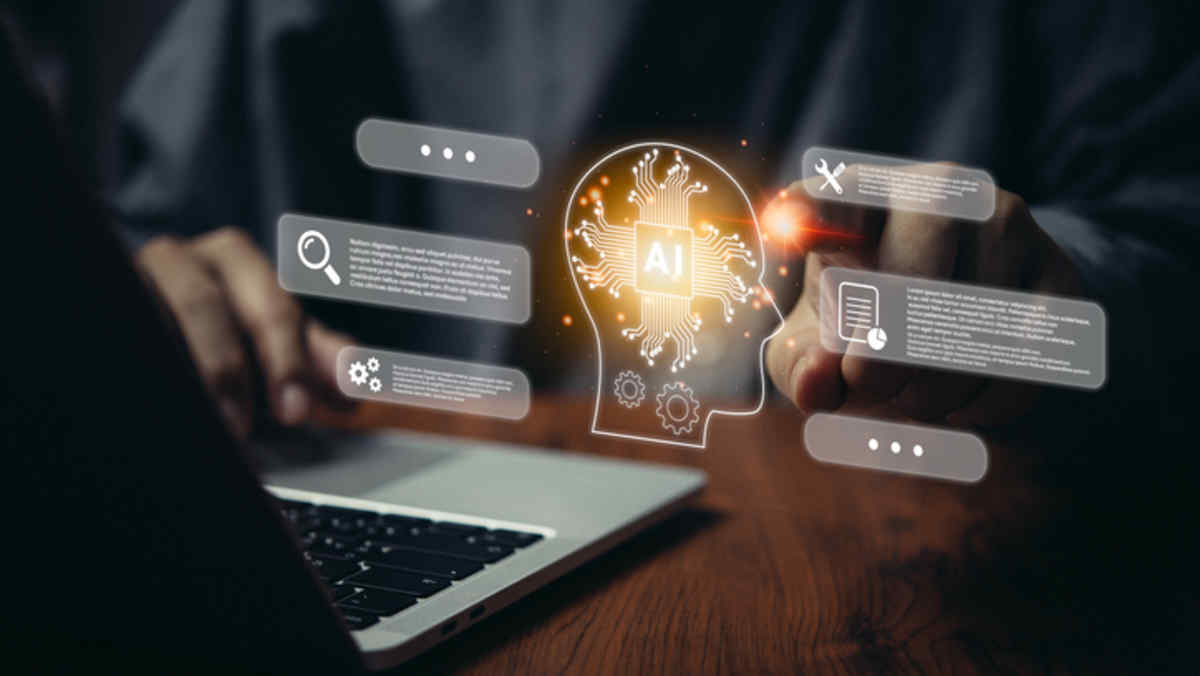

Since ChatGPT was launched in late 2022, many creative professionals working in fields like writing, design and editing have worried about how generative artificial intelligence might shrink or eliminate their jobs. AI’s potential impact on creative jobs has been part of a bigger, ongoing public conversation around not just the transformational power of generative AI, but also its limitations and associated risks.
“I don’t know if generative AI will ever be able to perform creative work to the level of humans,” said New York City-based freelance advertising copywriter Morissa Cohen, “but I do fear that clients and corporations will be willing to sacrifice quality for the cost savings AI can deliver. Even if we’re talking about straightforward tasks, like writing a descriptive web page, the quality of the creative work will suffer when AI does it. It’s humans doing their own thinking who add life, personality and surprise to the page.”
The big question, then, is what potential impact will generative AI have on creative jobs in the next few years? And the somewhat surprising answer, at least for creative roles in advertising, public relations and marketing, seems to be “very little.”
Administrative Roles Will Diminish, Creative Roles Will Thrive
Forrester, a research and advisory company with headquarters in Cambridge, Mass., recently issued a report, Agency AI-Powered Workforce Forecast, 2030, that analyzed the possible impact of AI on jobs within U.S. advertising, public relations and media-buying agencies, as well as in marketing services companies. The top-line finding was an anticipated 7.5 percent overall reduction in jobs within the creative industries.
But AI’s impact on jobs will be uneven. “Creative problem-solving roles in advertising and marketing will thrive with the increased adoption of AI technologies,” said Forrester Vice President and Principal Analyst Jay Pattisall. These roles include writers, editors, designers, analysts, certain data/computer scientists, and certain market research roles. “At the same time, process-oriented roles will be automated over time, including clerical, operations, back-office, finance and certain other roles that are highly repetitive.”
So doing a job that requires little thinking and creativity gives you, as a human worker, a short runway before AI potentially eliminates your role. But roles are only bundles of tasks, which means we need to consider what tasks AI does best and what tasks people do best.
What Tasks Are Best Done by AI?
“Automation and AI is best for doing tedious, repetitive tasks that require precision, but a low level of thinking,” Pattisall said, giving the example of a job moving data from one place to another.
Human creatives may shortly find themselves handing off such repetitive tasks to AI, while focusing more of their energies on higher-level tasks requiring creativity and creative problem-solving. “While generative AI can enhance or assist creative-problem solvers by speeding up and scaling their work,” Pattisall said, “AI cannot replace creative thinking or creative-problem solving. Our forecast finds that the least likely job trait to be automated is originality.”
Creative professionals are buoyed by that idea. “Being strategic, creative and original in business is really hard work,” said Brianne Miers, principal at communications consultancy KIND Communications, based in Boston. “By definition, there’s no ‘training data’ available for AI to learn and generate what’s never been done before, so it takes humans working collaboratively to create new approaches, new programs, new products and great creative work.”
Factors Delaying AI’s Impact on Jobs
Many factors will slow down the adoption of generative AI. These inhibiting factors, according to Pattisall, include the inaccuracy of AI, bias contained in training sets and data, yet-to-be determined legal questions about copyright, and the evolving regulatory environment around AI in the U.S. and Europe.
“We’ve already seen instances of alarming scenarios in which AI has failed miserably, for instance, by generating legal arguments citing nonexistent precedents,” said Keith Grafman, co-founder of Creative Content Consulting, based in New Jersey. The “alarming” scenario Grafman refers to involved lawyer Steven A. Schwartz, whose ChatGPT-generated legal brief contained bogus legal cases. Schwartz was later compelled to apologize, telling the presiding federal judge, “I did not comprehend that ChatGPT could fabricate cases.”
Another of generative AI’s limitations is its struggle to create text in the appropriate tone of voice, which is especially relevant for human resource professionals. “Creating written content in many fields, such as HR and for non-profit organizations, requires deep sensitivity about how language is used and the impact language has on others,” Miers said, “but with AI there can be outdated and insensitive language generated in referring to certain groups of people.”
AI continues to have an “empathy challenge,” making its current use problematic in contexts that require sensitivity.
AI + Humans: Integrating AI into Creative Work
The future of work for creative professionals may involve the use of generative AI as an “assistant” who can do some tasks quite well, but may still need human supervision.
“Generative AI is great at idea generation and also for doing outlines,” said Declan Daly, managing partner at executive recruiter Bundoran Group, headquartered in New Jersey. “It helps me break out of writer’s block and get started at being creative. However, I typically have to rewrite much of the generated text because it often has grammatical errors and factual discrepancies in it.”
Pattisall believes driving adoption of AI in advertising and creative roles will require companies “to inspire people with a vision for how AI helps enhance work and jobs, rather than allowing concerns about job displacement to become a barrier.” He added that organizations need to strengthen their knowledge and practices around AI with a combination of training and a rigorous playbook of best practices.
“AI will not replace your creative job,” Pattisall said, “but someone with more knowledge and experiences using AI as a tool just might.”
Joseph Romsey is a freelance writer based in Boston, Mass.

